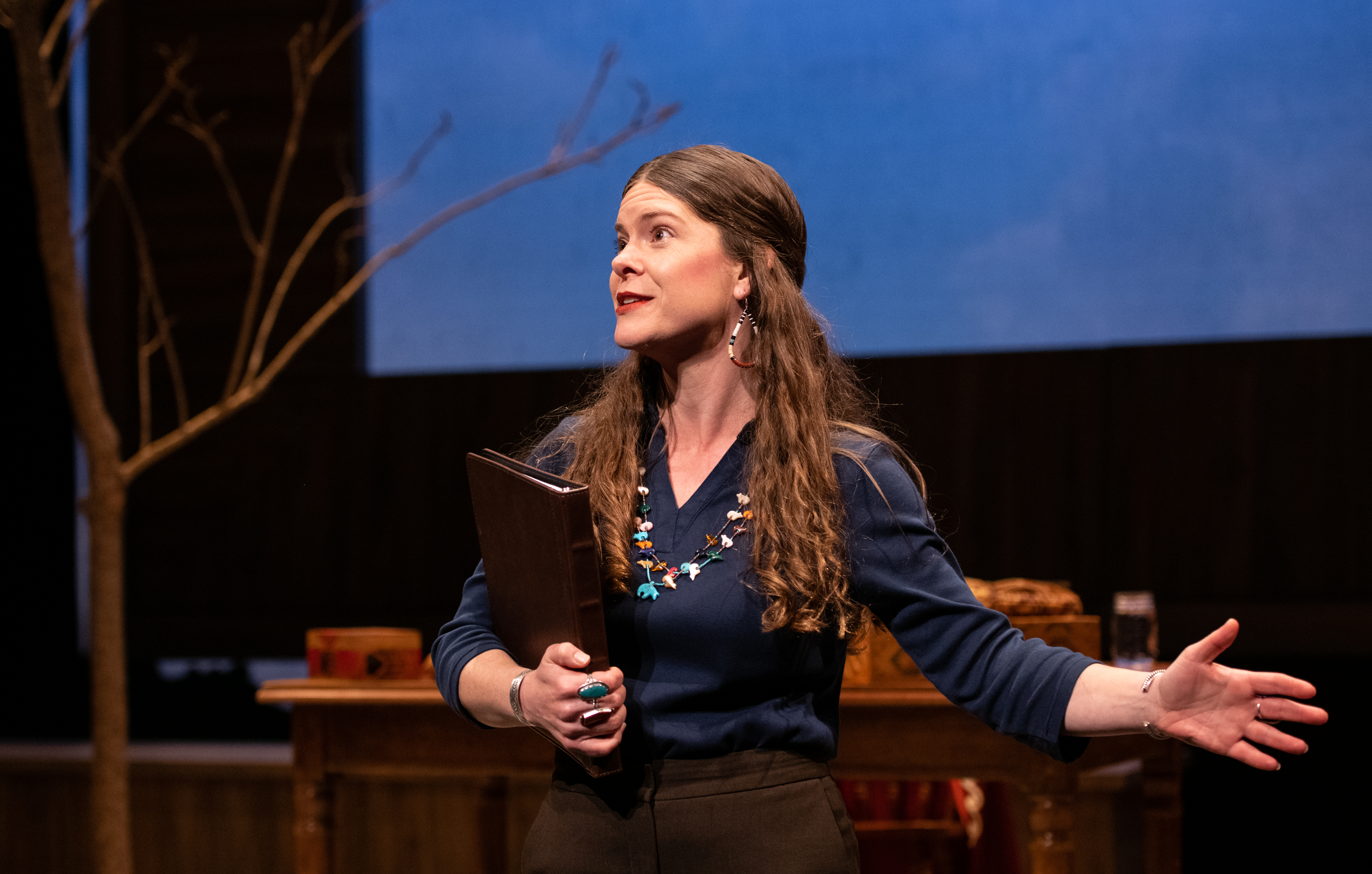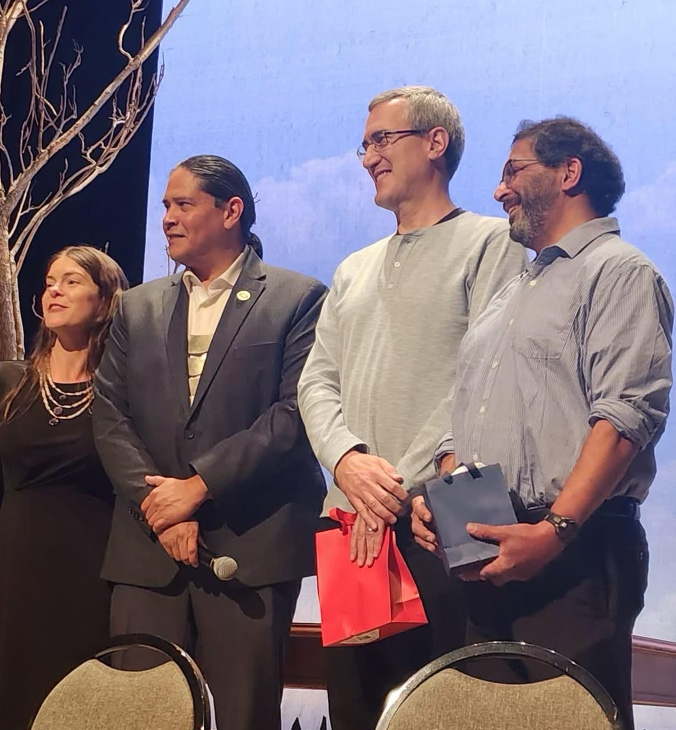VAWA Sovereignty Initiative Update: June 2023

June 2023
As summer begins and the Supreme Court’s 2022 Term comes to a close, we are all waiting with eager anticipation for the Court’s decision in Brackeen v. Haaland. Because Restoration goes to print in May, we will not have the opportunity to revise this VAWA Sovereignty Initiative Update to include any analysis of the Court’s actual decision. For a breakdown of the issues in the case and the potential consequences, please see the February 2023 issue of Restoration, Volume 20.1. And in the meantime, we continue to pray for the right outcome in Brackeen. Nothing less than our children and the sovereignty of our Nations depend on it.
In the meantime, we continue our work to educate and inspire our non-Native allies to understand why we fight to preserve Native culture and sovereignty and provide the political will for federal policy makers to fulfill the federal trust responsibility. This spring, I was honored to perform a play I had written about my mother-in-law, Jean Hill Chaudhuri, at the Round House Theatre, in Washington, D.C.. On the Far End ran from April 1 to May 7, sharing the story of an incredible Mvskoke matriarch who survived some of the worst of the United States’ assimilation policies to live a life full of activism and community power. As the Washington Post noted in its review of the play:
Moving around this environment with stately posture, Nagle’s Jean looks back on her life’s personal and professional turning points, including her marriage to Bengali scholar Joyotpaul Chaudhuri and the time she persuaded Sen. John McCain (R-Ariz.) to oppose a corporation’s plans to develop a site steeped in Native history.
Jean’s account aches with awareness of the federal government’s centuries-long betrayal and mistreatment of Native Americans, and she copes regularly with bigotry. In one early scene, her grandfather recalls surviving the Trail of Tears. Later, Jean is chased by dogs when she repeatedly runs away from one of the federal boarding schools that aimed to erase Native American identity and culture.
The play contains humor, too, as when Jean’s 7-year-old son, obsessed with the Beatles, speculates that he and his younger brother might be mistaken for two of the Fab Four.
The play is named On the Far End for the first four words of the Supreme Court’s decision in Oklahoma v. McGirt, a 2020 Supreme Court decision declaring that the Muscogee Nation’s Reservation remains in existence. As you may recall, the NIWRC filed an amicus brief in that case, explaining to the Court the harmful consequences that would result for Native women and children if the Court were to accept Oklahoma’s invitation to judicially disestablish the Muscogee Reservation. Thankfully, the Court declined Oklahoma’s request to depart from hundreds of years of precedent, and ultimately, Justice Gorsuch authored an opinion that maintained the existence of the Muscogee Reservation, declaring that “on the far end of the Trail of Tears, was a promise.”
In On the Far End, audiences learn about the Supreme Court’s decision in McGirt from the perspective of a Mvskoke woman whose ancestors fought for generations to make the victory in McGirt possible. Although the play is clearly political, it is also deeply personal.
In 1977, Jean received the National Jefferson Award for Public Service. It was a very prestigious award, given by individuals from the Pulitzer Group, Supreme Court Justices, and Jackie Kennedy. The award ceremony was held in the United States Supreme Court, and Jean received her award, personally, from Justice Byron White. As she told her husband Joy, when she stepped up to the podium and Justice White gestured for her to speak, she was without words. For the first time in her life, she didn’t know what to say. But then she heard her Grandpa. She heard her Dad. And her Mom. Their voices filled her head. And so she sang the song her Grandpa sang as he walked the Trail of Tears. When she finished, she was told that was the first time anyone had ever heard a “Native song” in the Supreme Court.
Forty-three years later, that same Court affirmed the continued existence of her Nation’s Reservation. And although Justice Byron White was not there to reject Oklahoma’s attempt to extinguish her and her Nation, the decision in McGirt was authored by Justice White’s law clerk, Justice Neil Gorsuch. The play poses a question: Did Justice White ever tell Neil what he witnessed on that fateful day in 1977 when Jean sang the song her ancestors sang on the Trail of Tears? What began as a prayer before one generation, manifested in the next.

As advocates, we fight for justice. We file amicus briefs in the Supreme Court. We write letters to the FBI, asking them to investigate the deaths of Native victims. We walk the halls of Congress, advocating for the restoration of Tribal jurisdiction to protect our own people in their own homes.
And when we are victorious, we know the victory goes far beyond our contemporary efforts. Today’s victories are generations in the making. Our ancestors have been with us every step of the way. Hold that thought, and that prayer, as we await an outcome in Brackeen.





